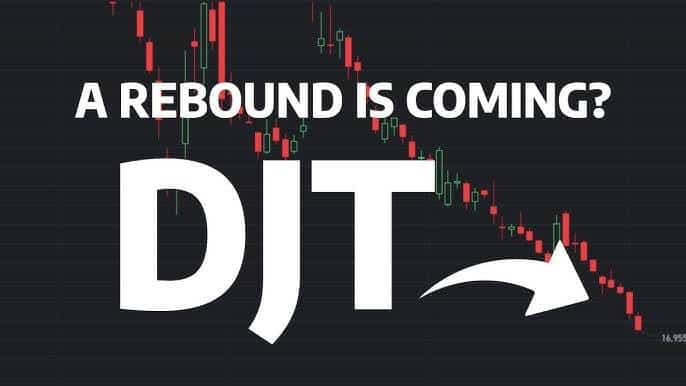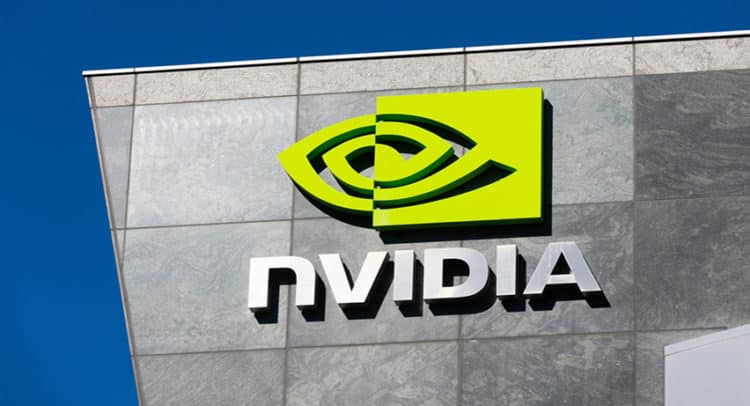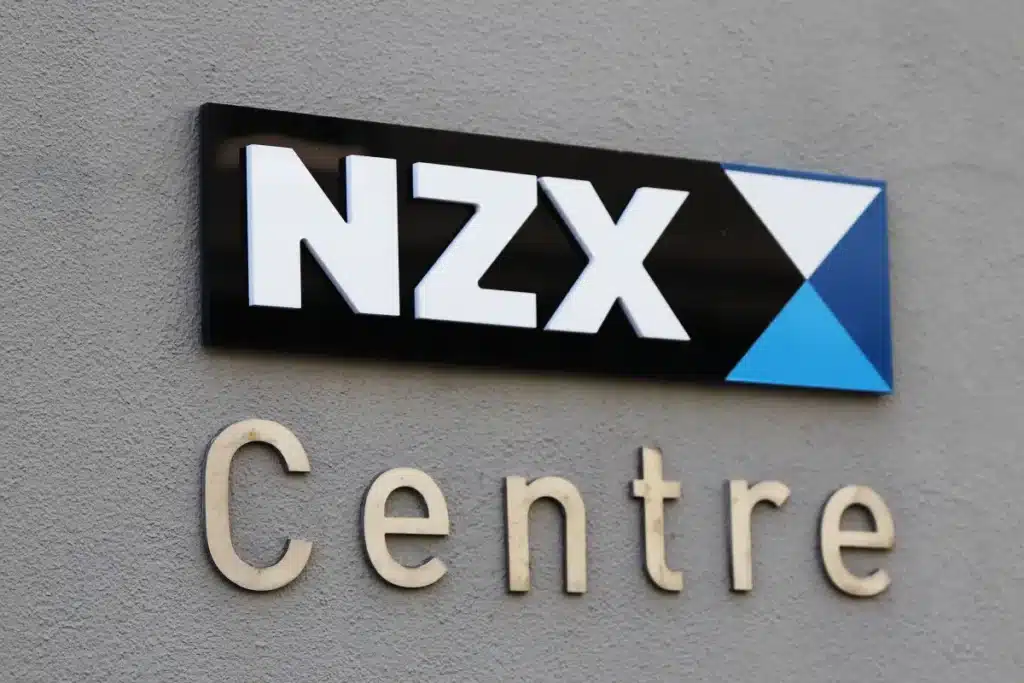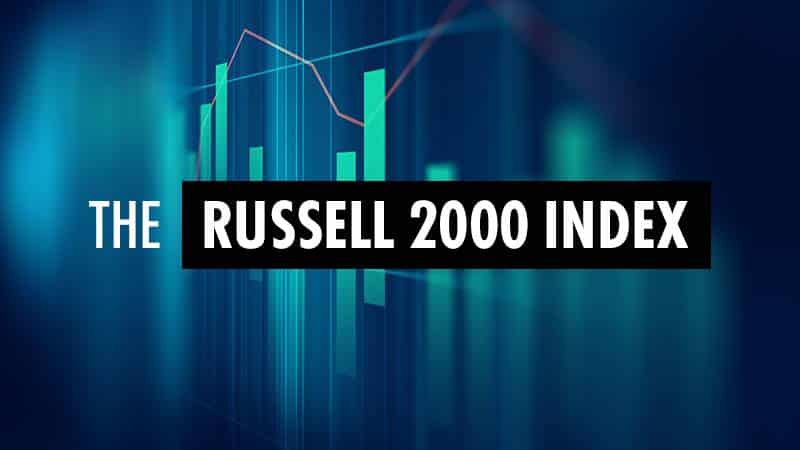Nairobi Securities Exchange (NSE 20 Index) + Kenya + Africa
The Nairobi Securities Exchange, through its flagship NSE 20 Index, serves as a gateway to the Kenyan stock market and, by extension, the broader African financial landscape. The index encompasses a diverse range of sectors, including banking, telecommunications, manufacturing, and consumer goods, providing investors with exposure to the country’s economic drivers.
As Kenya continues to solidify its position as a regional economic powerhouse, the NSE 20 Index has gained significance not only within the country but also across Africa. Investors seeking to capitalize on the continent’s growth potential often look to the NSE 20 Index as a means of accessing some of Kenya’s most promising and established companies.
Understanding the NSE 20 Index
The NSE 20 Index is a market capitalization-weighted index, meaning that the companies with the largest market capitalizations (share price multiplied by the number of outstanding shares) have a greater influence on the index’s performance. This weighting methodology ensures that the index accurately reflects the overall market sentiment and the performance of the most significant players in the Kenyan stock market.
To be included in the NSE 20 Index, companies must meet specific criteria, such as market capitalization, liquidity, and trading volume requirements. These stringent criteria ensure that the index represents the most actively traded and influential companies, providing investors with a reliable benchmark for the Kenyan stock market.
Top 5 list of best stocks in Nairobi Securities Exchange (NSE 20 Index)
- Safaricom PLC: As the leading telecommunications company in Kenya, Safaricom has consistently demonstrated strong financial performance and dominance in the mobile money market with its M-Pesa platform.
- Equity Group Holdings PLC: This banking and financial services conglomerate has a significant presence in Kenya and several other East African countries, making it a prominent player in the region’s financial sector.
- East African Breweries Limited (EABL): EABL is a well-established company in the beverage industry, with a diverse portfolio of beer and spirit brands that cater to both local and international markets.
- KCB Group PLC: As one of the largest commercial banks in Kenya, KCB Group has a strong presence in the East African region and is known for its robust financial performance and innovative banking solutions.
- British American Tobacco Kenya PLC: This multinational tobacco company has a significant market share in Kenya and is recognized for its consistent dividend payouts and strong brand recognition.
It’s important to note that this list is subject to change based on market conditions and the performance of the individual companies. Conducting thorough research and seeking professional advice is recommended before making any investment decisions.
NSE Listed Companies: Key Players in the Kenyan Stock Market
The Nairobi Securities Exchange is home to a diverse array of listed companies spanning various sectors, including banking, telecommunications, manufacturing, agriculture, and more. These companies play a vital role in driving the Kenyan economy and shaping the country’s financial landscape.
Some of the notable NSE-listed companies that have gained prominence in the Kenyan stock market include:
- Banking Sector: KCB Group PLC, Equity Group Holdings PLC, Co-operative Bank of Kenya Ltd., Standard Chartered Bank Kenya Ltd., and Diamond Trust Bank Kenya Ltd.
- Telecommunications: Safaricom PLC, Airtel Networks Kenya Ltd.
- Manufacturing: East African Breweries Limited (EABL), British American Tobacco Kenya PLC, Bamburi Cement Ltd.
- Energy and Utilities: KenGen Co. Ltd., Kenya Power and Lighting Company Ltd.
- Agriculture: Kakuzi PLC, Rea Vipingo Plantations Ltd.
These companies represent various industries and sectors, offering investors a diverse range of investment opportunities within the Kenyan stock market. By carefully analyzing their financial performance, growth prospects, and market positioning, investors can make informed decisions and potentially capitalize on the growth potential of these key players.
Kenyan Equities: Investing in the Kenyan Stock Market
Investing in Kenyan equities, or stocks listed on the Nairobi Securities Exchange, can provide investors with exposure to the country’s dynamic and rapidly growing economy. Kenya has emerged as a regional economic powerhouse, with a vibrant private sector and a burgeoning middle class, making it an attractive destination for both domestic and international investors.
When investing in Kenyan equities, you have the opportunity to participate in the growth and success of companies operating in various sectors, such as banking, telecommunications, manufacturing, and agriculture. These sectors have played a pivotal role in driving Kenya’s economic development and offer potential for long-term growth and returns.
However, it is crucial to approach equity investments with a well-informed strategy and a thorough understanding of the risks and opportunities associated with the Kenyan stock market. Conducting comprehensive research, seeking professional advice, and diversifying your portfolio can help mitigate risks and maximize potential returns.
Kenya Blue-Chip Stocks: Investing in Stable and Profitable Companies
Blue-chip stocks are typically defined as shares of well-established, financially sound, and consistently profitable companies. In the Kenyan stock market, several companies fit this description, offering investors the opportunity to invest in stable and potentially lucrative investments.
Some of the notable blue-chip stocks in the Kenyan market include:
- Safaricom PLC: As the leading telecommunications company in Kenya, Safaricom has a dominant market share and a strong track record of profitability.
- Equity Group Holdings PLC: This banking and financial services conglomerate has a robust presence in Kenya and the broader East African region, with a reputation for strong financial performance.
- East African Breweries Limited (EABL): EABL is a well-established player in the beverage industry, with a diverse portfolio of popular brands and a strong market position.
- KCB Group PLC: One of the largest commercial banks in Kenya, KCB Group has a solid financial foundation and a track record of consistent growth.
- British American Tobacco Kenya PLC: This multinational tobacco company has a significant market share in Kenya and is known for its consistent dividend payouts and strong brand recognition.
Investing in blue-chip stocks can provide a degree of stability and potential for long-term growth, as these companies often have well-established business models, strong brand recognition, and a proven track record of profitability. However, it is essential to conduct thorough research and seek professional advice before making any investment decisions.
Invest in Nairobi Securities Exchange (NSE 20 Index), Buy shares in Nairobi Securities Exchange (NSE 20 Index)
Investing in the Nairobi Securities Exchange (NSE) and specifically in the NSE 20 Index can provide you with exposure to the Kenyan stock market and its most prominent and actively traded companies. The NSE 20 Index serves as a benchmark for the overall performance of the Kenyan equity market and offers a diversified portfolio of the country’s leading corporations.
To invest in the NSE 20 Index, you can consider the following options:
- Individual Stock Investments: You can purchase shares of the individual companies that make up the NSE 20 Index. This approach allows you to tailor your investment portfolio according to your risk tolerance, investment goals, and preferences.
- Exchange-Traded Funds (ETFs): ETFs are investment funds that track the performance of a specific index, such as the NSE 20 Index. By investing in an ETF that replicates the NSE 20 Index, you gain exposure to the entire basket of companies within the index, providing instant diversification.
- Mutual Funds: Some mutual fund companies offer funds that invest in Kenyan equities or specifically track the NSE 20 Index. These funds are managed by professional fund managers and can provide an easy and convenient way to gain exposure to the Kenyan stock market.
Before investing in the NSE 20 Index or any individual stocks, it is essential to conduct thorough research, understand the risks involved, and seek professional advice from licensed financial advisors or stockbrokers. Additionally, familiarize yourself with the trading rules, regulations, and investment guidelines set forth by the Nairobi Securities Exchange and the Capital Markets Authority of Kenya.
NSE Stockbrokers: Choosing the Right Broker for Your Investments
When investing in the Nairobi Securities Exchange (NSE), it is crucial to work with a reputable and licensed stockbroker who can guide you through the process and facilitate your transactions. Stockbrokers serve as intermediaries between investors and the stock exchange, providing valuable insights, executing trades, and ensuring compliance with regulatory requirements.
Choosing the right stockbroker can have a significant impact on your investment experience and potential returns. Here are some factors to consider when selecting an NSE stockbroker:
- Reputation and Experience: Look for stockbrokers with a proven track record and extensive experience in the Kenyan stock market. Established firms with a solid reputation can offer valuable insights and guidance.
- Licensing and Regulation: Ensure that the stockbroker you choose is licensed and regulated by the Capital Markets Authority of Kenya (CMA). This ensures that they adhere to industry standards and regulations, providing an additional layer of protection for investors.
- Service Offerings: Evaluate the range of services offered by the stockbroker, such as research and analysis, investment advisory, online trading platforms, and customer support. Choose a broker that aligns with your investment needs and preferences.
- Fees and Commissions: Compare the fees and commissions charged by different stockbrokers for their services. While fees should not be the sole deciding factor, it is important to understand the associated costs and ensure they are reasonable and transparent.
- Technology and Trading Platforms: In today’s digital age, consider the stockbroker’s technological capabilities, including user-friendly online trading platforms, mobile apps, and real-time market data access.
- Customer Service and Support: Assess the stockbroker’s commitment to customer service and support. A responsive and knowledgeable team can make a significant difference in your investment experience, particularly during volatile market conditions.
By carefully evaluating and selecting the right NSE stockbroker, you can enhance your investment journey, access valuable insights, and navigate the Kenyan stock market with greater confidence and efficiency.
Understanding Kenyan Stock Market Indices
The Kenyan stock market is represented by several indices, each providing a snapshot of the performance of various sectors or segments of the market. Understanding these indices is crucial for investors seeking to gauge market trends, make informed investment decisions, and benchmark their portfolio’s performance.
Here are some of the key Kenyan stock market indices:
- NSE 20 Index: As previously discussed, the NSE 20 Index is the flagship index of the Nairobi Securities Exchange, comprising the 20 largest and most actively traded companies. It serves as a barometer for the overall performance of the Kenyan stock market.
- NSE 25 Index: The NSE 25 Index is a broader market index that includes the 25 most liquid and capitalized companies listed on the NSE. It provides a more comprehensive representation of the Kenyan equity market.
- NSE All Share Index (NASI): The NASI is a market capitalization-weighted index that tracks the performance of all companies listed on the Nairobi Securities Exchange. It offers a broad overview of the entire Kenyan stock market.
- NSE FTSE 25 Index: This index is a collaboration between the NSE and FTSE Russell, a leading global index provider. The NSE FTSE 25 Index tracks the performance of the 25 most liquid and tradable companies on the NSE, applying international standards and methodologies.
- Sectoral Indices: The NSE also maintains sectoral indices that track the performance of specific industries or sectors, such as banking, manufacturing, energy, and agriculture. These indices provide valuable insights into the performance of companies operating within those sectors.
By monitoring and analyzing these indices, investors can gain a better understanding of the overall market sentiment, identify potential investment opportunities, and make more informed decisions aligned with their investment goals and risk tolerance.
Exploring NSE 20 Historical Data: Patterns and Historical Performance
To make informed investment decisions in the Kenyan stock market, it is crucial to analyze historical data and patterns related to the NSE 20 Index. By studying the index’s past performance, investors can gain valuable insights into market trends, identify potential opportunities, and develop effective investment strategies.
Here are some key aspects to consider when exploring NSE 20 historical data:
- Price Movements: Analyze the historical price movements of the NSE 20 Index over different time periods, such as daily, weekly, monthly, or yearly intervals. This can help identify trends, support and resistance levels, and potential entry or exit points for investments.
- Volatility: Examine the volatility of the NSE 20 Index by studying the magnitude and frequency of price fluctuations. Understanding volatility can assist in risk management and portfolio diversification strategies.
- Correlation with Economic Indicators: Investigate the relationship between the NSE 20 Index’s performance and various economic indicators, such as GDP growth, inflation rates, interest rates, and currency fluctuations. This can provide insights into how macroeconomic factors influence the Kenyan stock market.
- Sector Performance: Analyze the historical performance of different sectors represented in the NSE 20 Index, such as banking, telecommunications, and manufacturing. This can help identify sectors that have outperformed or underperformed during specific market conditions.
- Technical Analysis: Apply technical analysis techniques, such as chart patterns, moving averages, and oscillators, to identify potential buy or sell signals and support or resistance levels in the NSE 20 Index’s historical data.
- Fundamental Analysis: Evaluate the fundamental factors, such as company financials, industry trends, and management performance, that have influenced the historical performance of individual stocks within the NSE 20 Index.
By combining historical data analysis with fundamental and technical analysis techniques, investors can gain a comprehensive understanding of the NSE 20 Index’s behavior and make more informed investment decisions aligned with their risk tolerance and investment objectives.
NSE Trading Volume: Assessing Market Liquidity and Investor Participation
Trading volume is a crucial metric in the stock market, as it provides insights into market liquidity and investor participation. In the context of the Nairobi Securities Exchange (NSE), monitoring trading volume can help investors assess the overall health and vibrancy of the Kenyan stock market.
High trading volume typically indicates increased investor interest and activity, which can contribute to greater market liquidity. Liquidity is essential for efficient price discovery and the ability to enter and exit positions with relative ease. Conversely, low trading volume can signal a lack of investor participation, potentially leading to wider bid-ask spreads and increased volatility.
When analyzing trading volume on the NSE, consider the following factors:
- Daily Trading Volume: Examine the daily trading volume of individual stocks or the NSE 20 Index to identify patterns and trends. Consistently high trading volumes can indicate strong investor demand and liquidity, while low volumes may suggest a lack of interest or potential market inefficiencies.
- Volume Spikes: Pay attention to significant spikes in trading volume, as they can signal important events or news that may impact stock prices. Analyzing the reasons behind volume spikes can provide valuable insights into market sentiment and potential trading opportunities.
- Volume Relative to Market Capitalization: Compare trading volume to the market capitalization of individual stocks or the NSE 20 Index. High volume relative to market capitalization can indicate increased investor interest and potentially stronger price movements.
- Sector and Industry Volume: Evaluate trading volume across different sectors and industries represented on the NSE. This can help identify areas of investor focus and potential investment opportunities based on market participation.
- Foreign Investor Participation: Monitor the trading volume attributed to foreign investors, as their participation can significantly impact market liquidity and sentiment in the Kenyan stock market.
By regularly monitoring and analyzing trading volume on the NSE, investors can gain valuable insights into market dynamics, liquidity conditions, and investor sentiment. This information can be used to make more informed investment decisions, manage risk effectively, and identify potential trading opportunities.
NSE Investment Opportunities: Exploring Different Sectors and Industries
The Nairobi Securities Exchange (NSE) offers a diverse range of investment opportunities across various sectors and industries, catering to investors with different risk profiles and investment objectives. By exploring these sectors, you can gain a deeper understanding of the Kenyan economy and identify potential areas for growth and returns.
Here are some of the key sectors and industries represented on the NSE:
- Banking and Financial Services: This sector includes major commercial banks, investment firms, and insurance companies. The banking industry plays a crucial role in driving economic growth and facilitating financial transactions in Kenya.
- Telecommunications: With the rise of mobile technology and internet connectivity, the telecommunications sector has emerged as a significant contributor to the Kenyan economy. Companies in this sector offer opportunities to invest in the country’s digital transformation.
- Manufacturing: Kenya’s manufacturing sector encompasses a wide range of industries, including consumer goods, beverages, tobacco, and construction materials. Investing in this sector can provide exposure to the country’s industrial growth and consumer demand.
- Agriculture and Agribusiness: As an agricultural-based economy, Kenya offers investment opportunities in companies involved in crop production, processing, and distribution. This sector plays a vital role in food security and economic development.
- Energy and Utilities: With a growing population and increasing demand for energy, the energy and utilities sector presents investment opportunities in power generation, distribution, and renewable energy initiatives.
- Real Estate and Construction: Kenya’s urbanization and infrastructure development have fueled growth in the real estate and construction sectors, offering potential investment opportunities in residential, commercial, and infrastructure projects.
- Healthcare and Pharmaceuticals: As the healthcare sector continues to evolve in Kenya, investors can explore opportunities in pharmaceutical companies, medical facilities, and healthcare service providers.
Each sector and industry has its own unique characteristics, risks, and growth potential. By conducting thorough research, analyzing market trends, and seeking professional advice, investors can identify investment opportunities that align with their risk tolerance and investment goals within the diverse sectors represented on the NSE.
NSE Market Sectors: Analyzing the Performance of Different Industries
The Nairobi Securities Exchange (NSE) is home to a diverse array of market sectors, each representing a unique segment of the Kenyan economy. Analyzing the performance of these sectors can provide valuable insights into the overall health and growth potential of the Kenyan stock market.
Here’s a closer look at some of the key market sectors on the NSE and their performance:
- Banking Sector: The banking sector is a significant contributor to the NSE’s market capitalization and trading activity. Major banks like Equity Group Holdings, KCB Group, and Co-operative Bank of Kenya have consistently demonstrated strong financial performance, driven by the country’s expanding middle class and increasing demand for financial services.
- Telecommunications Sector: Dominated by Safaricom PLC, the telecommunications sector has experienced remarkable growth, fueled by the widespread adoption of mobile technology and innovative services like M-Pesa. This sector has played a pivotal role in driving financial inclusion and digital transformation in Kenya.
- Manufacturing Sector: Companies like East African Breweries Limited (EABL) and British American Tobacco Kenya have helped shape the performance of the manufacturing sector on the NSE. This sector has benefited from the growing consumer demand for fast-moving consumer goods (FMCG) and the expansion of regional trade agreements.
- Energy and Utilities Sector: With a growing population and increasing industrialization, the energy and utilities sector has witnessed steady growth. Companies like KenGen and Kenya Power and Lighting Company have been at the forefront of meeting the country’s energy needs and exploring renewable energy sources.
- Agriculture and Agribusiness Sector: As an agricultural-based economy, Kenya’s agribusiness sector plays a crucial role in the stock market. Companies like Kakuzi and Rea Vipingo Plantations have capitalized on the growing demand for agricultural products, both domestically and internationally.
By analyzing the performance of these market sectors, investors can gain insights into the overall economic landscape, identify potential investment opportunities, and make informed decisions based on sector-specific trends and growth prospects. Additionally, diversifying investments across different sectors can help mitigate risk and enhance portfolio performance.
NSE Financial News: Staying Updated with Market Developments
Staying informed about the latest financial news and market developments is crucial for investors navigating the Nairobi Securities Exchange (NSE). Real-time information and analysis can provide valuable insights, enabling investors to make well-informed decisions and capitalize on emerging opportunities.
Here are some reliable sources and platforms to stay updated with NSE financial news:
- NSE Website and Publications: The official website of the Nairobi Securities Exchange (www.nse.co.ke) provides a wealth of information, including market data, company announcements, and regulatory updates. Additionally, the NSE publishes regular reports and newsletters that offer in-depth analysis and insights into the Kenyan stock market.
- Financial News Websites and Portals: Online platforms such as Reuters, Bloomberg, and CNBC Africa provide dedicated sections for Kenyan and African financial news, offering real-time updates, market analysis, and expert commentary on the NSE and other regional markets.
- Local and International Newspapers: Reputable Kenyan newspapers like the Daily Nation and the Business Daily, as well as international publications like the Financial Times and The Wall Street Journal, often feature articles and analyses on the Kenyan stock market and its listed companies.
- Financial Blogs and Social Media: Engage with financial bloggers and influencers who specialize in the Kenyan stock market. Many of them offer insightful commentary and analysis on market trends, company performance, and investment strategies. Additionally, social media platforms like Twitter and LinkedIn can be valuable sources of real-time updates and discussions.
- Brokerage Firm Research and Reports: Many stockbrokers and investment firms in Kenya provide regular research reports and analysis on the NSE and its listed companies. These reports can offer valuable insights into specific sectors, industries, and investment opportunities.
- Company Announcements and Investor Relations: Stay up-to-date with company announcements, financial reports, and investor relations materials from the companies listed on the NSE. These sources can provide valuable information on company performance, strategic initiatives, and future prospects.
By leveraging these various sources and platforms, investors can stay informed about the latest NSE financial news, market trends, and developments, enabling them to make well-informed investment decisions and capitalize on emerging opportunities in the Kenyan stock market.
Kenya Stock Market Analysis: Tools and Techniques for Evaluating Investments
Conducting thorough analysis is essential for making informed investment decisions in the Kenyan stock market. By leveraging various tools and techniques, investors can gain a comprehensive understanding of the market dynamics, company performance, and potential risks and rewards associated with their investments.
Here are some commonly used tools and techniques for analyzing the Kenyan stock market:
- Fundamental Analysis: This approach involves evaluating a company’s financial statements, management quality, competitive position, and overall business model. Key metrics such as revenue growth, profitability, debt levels, and cash flow are analyzed to assess a company’s intrinsic value and future prospects.
- Technical Analysis: Technical analysis focuses on studying historical price and volume data to identify patterns and trends that can signal potential buy or sell opportunities. Tools such as chart patterns, moving averages, and oscillators are used to analyze market sentiment and make trading decisions.
- Ratio Analysis: Ratio analysis involves calculating and interpreting various financial ratios, such as price-to-earnings (P/E), price-to-book (P/B), and debt-to-equity (D/E) ratios. These ratios provide insights into a company’s valuation, profitability, and financial health, enabling investors to make comparisons and identify potential investment opportunities.
- Industry and Sector Analysis: Evaluating the performance and trends within specific industries and sectors can provide valuable context for investment decisions. By analyzing factors such as industry growth rates, competitive landscapes, and regulatory environments, investors can identify potential winners and losers within each sector.
- Macroeconomic Analysis: Understanding the broader economic environment, including factors like GDP growth, inflation, interest rates, and government policies, can provide insights into the overall market conditions and potential investment risks and opportunities.
- Qualitative Analysis: In addition to quantitative analysis, investors should also consider qualitative factors such as management quality, corporate governance practices, and a company’s competitive advantages. These factors can significantly impact a company’s long-term performance and sustainability.
- Portfolio Analysis: Investors should evaluate their investment portfolios as a whole, considering factors such as diversification, risk exposure, and overall asset allocation. Tools like modern portfolio theory and risk management techniques can help optimize portfolio performance and manage risk effectively.
By combining these various tools and techniques, investors can gain a comprehensive understanding of the Kenyan stock market and make more informed investment decisions aligned with their risk tolerance and investment objectives.
NSE Regulations: Understanding the Legal Framework of the Kenyan Stock Market
Investing in the Kenyan stock market requires a thorough understanding of the legal and regulatory framework governing the Nairobi Securities Exchange (NSE) and its listed companies. These regulations are designed to protect investors, promote market integrity, and ensure fair and transparent trading practices.
The primary regulatory body overseeing the Kenyan capital markets is the Capital Markets Authority (CMA). The CMA is responsible for licensing and regulating market participants, such as stockbrokers, investment advisors, and fund managers. It also plays a crucial role in enforcing securities laws and regulations, as well as promoting investor education and market development.
Key regulations and laws governing the NSE include:
- Capital Markets Act: This is the primary legislation governing the Kenyan capital markets, including the NSE. It outlines the roles and responsibilities of market participants, sets guidelines for securities trading, and establishes rules for corporate governance and disclosure requirements.
- NSE Listing Rules: The NSE Listing Rules provide a comprehensive framework for companies seeking to list their shares on the exchange. These rules cover eligibility criteria, ongoing disclosure obligations, and corporate governance requirements for listed companies.
- Central Depository and Settlement Corporation (CDSC) Rules: The CDSC is responsible for the clearing, settlement, and depository functions of the Kenyan stock market. Its rules govern the electronic trading system, settlement procedures, and the safekeeping of securities.
- Anti-Money Laundering and Counter-Terrorism Financing Regulations: These regulations aim to combat financial crimes and ensure the integrity of the Kenyan financial system, including the stock market. They require market participants to implement robust anti-money laundering and counter-terrorism financing measures.
- Corporate Governance Code: The Corporate Governance Code for listed companies in Kenya outlines best practices in areas such as board composition, risk management, and stakeholder engagement. Adherence to this code is essential for promoting transparency and accountability in the Kenyan stock market.
Investors should familiarize themselves with these regulations and seek guidance from licensed professionals, such as stockbrokers and financial advisors, to ensure compliance and mitigate potential risks. Additionally, staying up-to-date with any regulatory changes or updates is crucial for making informed investment decisions in the Kenyan stock market.
NSE Stock Market Updates: Sources for Real-Time Information and Updates
In today’s fast-paced financial markets, staying informed about real-time developments and updates related to the Nairobi Securities Exchange (NSE) is crucial for making timely and informed investment decisions. Fortunately, there are various sources available to investors that provide up-to-the-minute information and analysis on the Kenyan stock market.
Here are some reliable sources for real-time NSE stock market updates:
- NSE Website and Mobile App: The official website of the Nairobi Securities Exchange (www.nse.co.ke) offers real-time market data, including stock prices, trading volumes, and market indices. Additionally, the NSE mobile app provides convenient access to this information on-the-go, enabling investors to stay updated anytime, anywhere.
- Financial News Websites and Portals: Online platforms such as Reuters, Bloomberg, and CNBC Africa offer dedicated sections for Kenyan and African financial news, providing real-time updates, market analysis, and expert commentary on the NSE and other regional markets.
- Stock Trading Platforms and Brokerage Firm Websites: Many stockbrokers and investment firms in Kenya provide online trading platforms and websites that offer real-time access to stock prices, market data, and news updates related to the NSE and its listed companies.
- Social Media Channels: Several financial professionals, analysts, and market participants actively share real-time updates and insights on social media platforms like Twitter and LinkedIn. Following reputable accounts and joining relevant groups can provide valuable real-time information and discussions about the Kenyan stock market.
- Financial News Aggregators and Mobile Apps: Mobile apps and websites like Yahoo Finance, Google Finance, and Investing.com aggregate real-time stock quotes, news, and analysis from various sources, making it convenient to access NSE-related updates in one place.
- SMS and Email Alerts: Many financial institutions and brokerage firms offer SMS and email alert services that can deliver real-time updates on stock prices, market movements, and breaking news related to the NSE and your investment portfolio.
By leveraging these various sources, investors can stay informed about real-time developments in the Kenyan stock market, enabling them to make timely and informed investment decisions, react to market fluctuations, and capitalize on emerging opportunities.
Unlocking the Potential of the Nairobi Securities Exchange
The Nairobi Securities Exchange (NSE) represents a dynamic and growing financial market, offering investors a gateway to the vibrant Kenyan economy and the broader African continent. By understanding the intricacies of the NSE, its flagship NSE 20 Index, and the various investment opportunities it presents, you can position yourself to unlock the potential of this exciting marketplace.
Throughout this comprehensive guide, we have explored the NSE’s history, its operational framework, and the diverse sectors and industries represented on the exchange. We have delved into the significance of the NSE 20 Index, its composition, and its role as a barometer for the overall performance of the Kenyan stock market.
Furthermore, we have examined the importance of conducting thorough analysis using various tools and techniques, such as fundamental and technical analysis, ratio analysis, and macroeconomic analysis. By leveraging these analytical approaches, you can gain a deeper understanding of the market dynamics, company performance, and potential risks and rewards associated with your investments.
Navigating the Kenyan stock market also requires a solid grasp of the legal and regulatory framework governing the NSE and its listed companies. We have explored the key regulations and laws, including the Capital Markets Act, NSE Listing Rules, and Corporate Governance Code, which are designed to protect investors and promote market integrity.
Staying informed about real-time developments and updates is crucial in today’s fast-paced financial markets. We have highlighted reliable sources for real-time NSE stock market updates, including the NSE website and mobile app, financial news websites and portals, stock trading platforms, and social media channels.
As you embark on your investment journey in the Kenyan stock market, remember to approach it with a well-informed strategy, seek professional advice when needed, and continuously educate yourself on market trends and developments. By leveraging the insights and knowledge gained from this guide, you can navigate the NSE with confidence and potentially unlock the potential for long-term growth and wealth creation.
To stay ahead in the dynamic Kenyan stock market, consider subscribing to our premium investment newsletter. Our team of experienced analysts and market experts provide in-depth analysis, actionable insights, and exclusive investment recommendations tailored to your investment goals and risk tolerance. With real-time updates and personalized guidance, you’ll be empowered to make informed decisions and maximize your returns in the Nairobi Securities Exchange. Subscribe now and unlock the full potential of the Kenyan stock market.










































